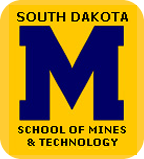2009 Program Educational Objectives
Review
The Advisory Board met on
October 16, 2009 to review the department’s mission:
· Provide a
quality program leading to the degree B.S. in Metallurgical Engineering
· Participate in
multi-disciplinary programs leading to the M.S. and Ph.D. degree programs in
materials engineering and science
· Contribute to
the expansion of knowledge in the area of materials and metallurgical
engineering through scholarly activities
·
Help local, regional, national and international
materials and metallurgical industries through research and development
activities
As part of the
first mission statement the board reviewed progress towards meeting the B.S.
Metallurgical Engineering program educational objectives:
·
Successfully
apply metallurgical engineering principles in their employment
·
Meet
societal needs through science and technology
·
Grow
professionally and personally
·
Serve
their profession and community
The board concluded:
The program educational objectives remain current and appropriate. Alumni surveys and feedback from board
members on the program’s alumni performance in the workplace indicate that the
objectives are being met and that no specific changes in curriculum beyond the
suggestions below are needed.
·
The
department should consider offering one or two survey classes on the larger
materials topics such as ceramics, biomaterials, polymers, electronic
materials, composites, etc. and
·
It is
critical that the proper replacement be found for Dr. Howard as he nears retirement
and that this transition proceeds as smoothly as possible.
·
Some
class space, laboratories, and offices need infrastructure upgrades and repair
to meet current standards. There have
been some new additions of equipment to the Departmental laboratories in recent
years, but not a lot of change. While
expensive and difficult to do, the faculty and school need to ensure that
laboratories are current so the students can be adequately prepared for future
jobs or additional training at research universities.
·
The Department
should continue to emphasize and expand opportunities for students to work in
summer or co-op jobs to gain experience.
·
The department
should work to obtain another funded faculty position. Faculty numbers are
still low for the number of enrolled students and the level of research funding
being performed. Many MSE departments
have student to faculty ratios of about 12 : 1. This department is approximately
16:1. With five faculty members, the department is
always just one step away from a dilemma should a member be lost. Adding another faculty member with the
correct skill set could also be a method to broaden the department’s range of
abilities and class offerings.
The program faculty
reviewed the Advisory Board Report, the 2008 Alumni Survey (attached), and the
feedback from the 2010 Constituent Focus Group.
Loop closure on the 2007 Actions is
summarized here.
2007 Evaluation Process Actions Completed
·
The best means of obtaining input
from employers of our program alumni is to sit the employers on our Advisory
Board. This eliminates violation confidentiality
of personnel matters (for their employees – our alumni) while maintaining a
direct link to our alumni performance.
This is working well and will continue.
·
Alumni survey questions using Survey
Monkey were aligned directly with the program objectives in the 2008 survey as
shown below. This allows excellent
evaluation of program objectives. This
survey procedure will continue unchanged.
·
The Student
Satisfaction-Importance Survey (SSI) results were reviewed by the program
faculty and found to be of no significant use in the evaluation of program
educational objectives. The survey will
be used to formulate a program-created survey of program students to better
assess student satisfaction. The SSI will
no longer be considered for use in program objective assessment.
2007 Objective Improvement Actions Completed
·
The new administration and
faculty have completed a review and restatement of the university mission and
objectives. The remapping of program
objectives to the newly-stated university objections has been completed.
·
Communication skills were
correctly identified as an area that was going to require special attention
during turnover of the program faculty.
The retirements of Drs. Stone and Han were particularly significant
since they were heavily involved in supporting writing skill improvements. The new faculty has been trained in program
expectations and procedures to assure the continued writing competence of
program graduates. Instructional documents have been created and shared among
program faculty to improve uniformity in expectations. Writing and oral communication instruction is
discussed at least monthly at departmental meetings. All program faculty members sit in the every
design reports meeting where they offer presentation criticism and instruction.
·
The senior exit exam and survey
now provide satisfactory feedback to assess ethics, professionalism, and global
issues. (The alumni survey continues to
be useful in evaluating program educational objectives.)
Actions for 2009
Evaluation Process
The evaluation process is working
well and requires no modification except for some question about the
consistency in alumni survey responses on profession service. Only 5/51 report serving a professional
society, while 15/51 report belonging to a professional society. This and other similar analysis indicate that
some additional work might be warranted to assure the meaningfulness of the
survey questions in these areas.
Objective
Improvement
Program graduates appear to
meeting all program objectives according to their self-assessment reporting largely
either a satisfied or very satisfied on all items except those
involving design and computational. Of
additional concern was that 8/51 respondents reported no significant professional
or community service. The low self
appraisal for design ability is needs to be tracked to determine if the new
design experience being offered since 2008 will, as expected, result in
improvement. It is decided that the
following actions items be set:
·
A determination of the effectiveness of the
Samurai Sword Design Project and current other design projects is leading to improved design skills
for the graduates.
·
Consideration should be given to specifically
addressing computational skills in the curriculum.
·
The program should
include additional discussion in the classroom on the importance of and means
of identifying areas of meaningful professional and community service.


